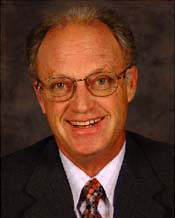Note: Dr. Collop has an NIH Small Business Innovation Research (SBIR) Grant with CleveMed, a company that makes a wireless PSG product, which might be considered for home monitoring. The device is currently being used in the hospital, not the home.
Explore This Issue
July 2008On March 13, the Centers for Medicare and Medicaid Services (CMS) ruled that it would reimburse continuous positive airway pressure (CPAP) treatment if diagnosed with a clinical evaluation and a positive result from an unattended home monitoring device. Prior to this date, CMS covered CPAP only if sleep apnea was diagnosed in a sleep laboratory with polysomnography (PSG).
CMS examined whether patients had a change in health outcomes based on the type of sleep testing they received, and did not find a difference between home monitoring and PSG, said Terence Davidson, MD, Professor of Surgery in the Division of Otolaryngology-Head and Neck Surgery and Director of the Sleep Center at the University of California at San Diego.
The American Academy of Otolaryngology-Head and Neck Surgery (AAO-HNS) petitioned CMS in January 2007 to consider payment for CPAP diagnosed with home testing, and many academy members participated in the CMS review process during the following year.
Even as Dr. Davidson described the new ruling as an excellent decision, several questions and concerns remain, according to other experts interviewed for this article.
Immediate Implications for Patients and Physicians
Because sleep apnea is a common problem, physicians need to move toward paradigms in which they quickly, efficiently, and inexpensively diagnose and get people on treatment, said Dr. Davidson. The CMS ruling was an important first step toward doing this, he explained.
The ruling will mean better access to sleep apnea testing for patients and an alternative to undergoing PSG in a sleep center, said Pell Ann Wardrop, MD, an otolaryngologist and sleep medicine specialist at Wardrop Medical Services, PLLC, in Lexington, KY.
Additionally, some otolaryngologists who view sleep disorders as a substantial part of their practice may decide to purchase home testing devices to diagnose sleep apnea, said Dr. Davidson. Many pulmonary physicians and even sleep physicians will also incorporate this technology into their practices, he said.
Those otolaryngologists and other physicians who choose to invest in the machines will need to designate office personnel to educate patients about home testing, said Dr. Davidson. Home sleep testing is simple, but not trivial, he said. It’s not like you buy a machine and every once in a while get it out and give it to the patient.

Leave a Reply